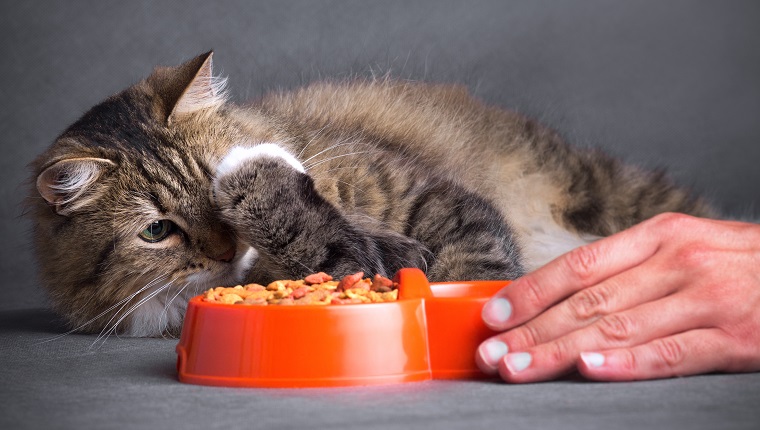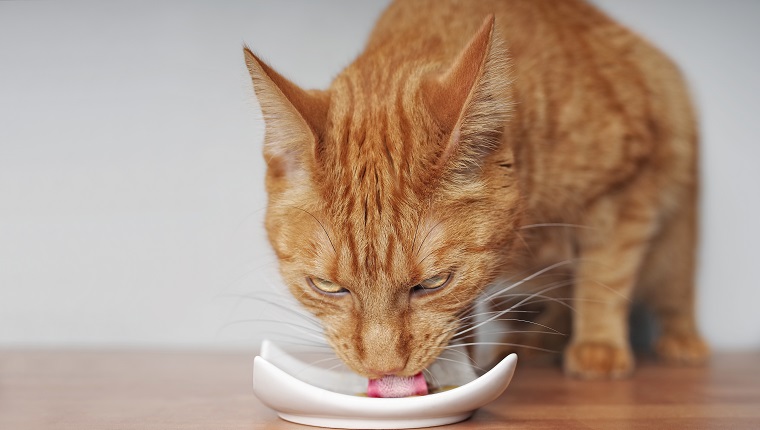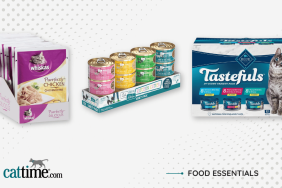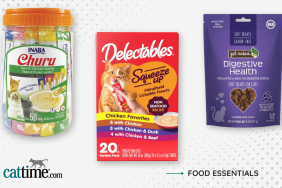Gastrointestinal food reaction in cats is a medical condition that takes place when a cat showcases symptoms due to being unable to properly digest or process a particular food.
It is important to note that these reactions are different from food allergies, with allergies occurring when a cat experiences an immune reaction to something they have consumed.
These food reactions can be brought on by factors including the use of additives in food or consuming spoiled food. Additionally, older adult cats seem most likely to develop an intolerance to lactose, while the Siamese breed in general seems more predisposed to suffering from sensitive food reactions.
If you see signs that your kitty might be suffering from a bad reaction to food that they’ve eaten, then you must consult your veterinarian for a proper diagnosis and advice. Here’s what you should know about the symptoms, causes, and treatments of gastrointestinal food reactions in cats.
Symptoms Of Gastrointestinal Food Reaction In Cats
Gastrointestinal food reaction in cats most often happen after introducing a cat to a new type of food or ingredient. Some of the most frequent symptoms include:
- Vomiting
- Diarrhea
- Loss of appetite
- Flatulence
- Losing weight
- Itching a lot
- Pain in the abdominal area
Causes Of Gastrointestinal Food Reaction In Cats

The cause of gastrointestinal food reaction in cats is most often the presence of a new food or ingredient introduced to a feline’s regular meals. Some of the specific things that can bring about a reaction:
- Food colorings
- Spices
- Consuming spoiled food
- Additives
Generally, older cats are most likely to start to develop an intolerance to lactose. Siamese cats also seem to suffer from food sensitivity issues more than other breeds of cat.
Veterinary Treatments
If you think that your cat might be having gastrointestinal food reactions, then your veterinarian will ask a series of detailed questions about your kitty’s precise diet and whether any new additions to mealtimes have been introduced recently.
While the vet may order blood and urine tests, these are more useful in ruling out other conditions rather than confirming a diagnosis.
When it comes to treating your cat, your vet will likely suggest switching to a very basic and minimal diet. This is so that you can isolate any ingredients that are setting off your cat’s reactions.
Beware that there is a lot of trial and error that goes on with this process. So remember to be patient with your cat and to keep very detailed and organized records about what they’re eating and whether their symptoms seem to be improving or worsening.
As always, consult with your veterinarian before making significant changes to your cat’s diet.
Has your cat ever had a gastrointestinal food reaction? What food or ingredient was causing the reaction? Tell us all about it in the comments below.









